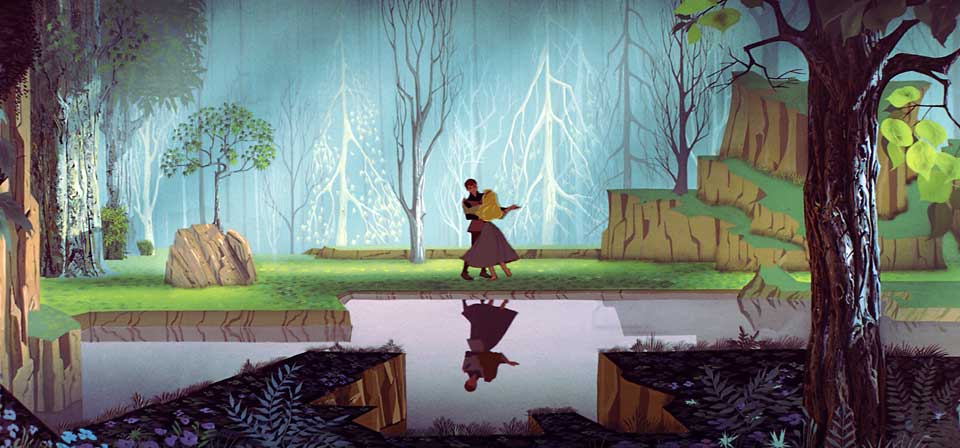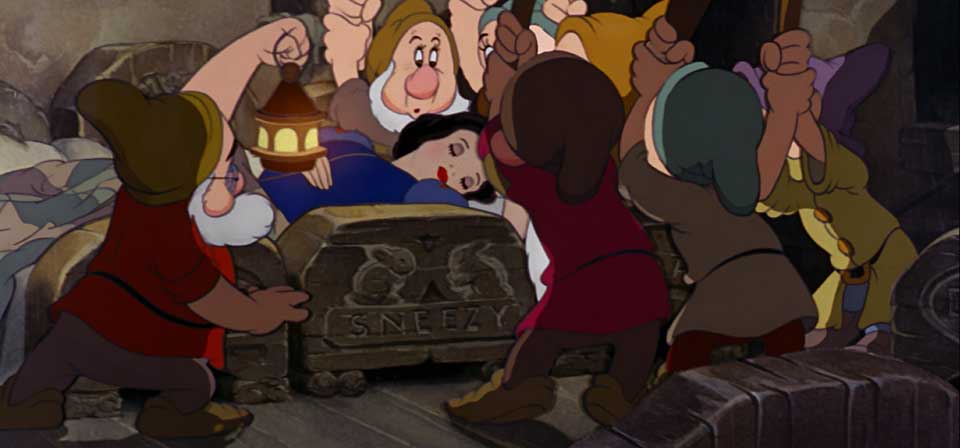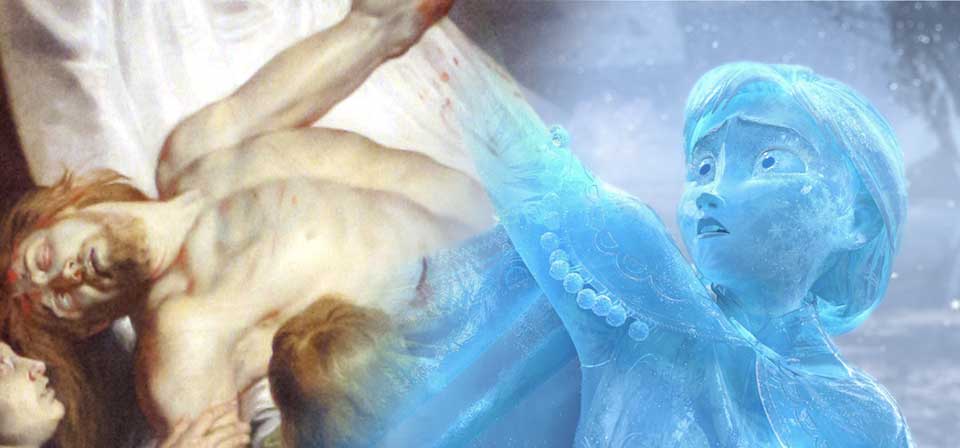Search Results
219 records found
Singing to Babies (and Kids)
Our new arrival, Matthew, is going on a month old, and he’s learning a lot about the world. One of the things he’s learning is that when Papa holds him, it’s not delicious like with Mama —but Papa sings songs, which seems to interest him. Suz says that when he’s not hungry he seems to prefer to be held by Papa, which may have as much to do with my patented rocking hold technique as my crooning, but I like to think the crooning helps too.
Sister Helen (2002)
God bless Sister Helen Travis, with her foul
mouth, black wimple, "I ♥ Jesus"
Site Update: Tags!
All reader feedback is welcome! If you think of any articles missing from tags that should include them, or if you find any that should be removed, please let me know. And, of course, let me know what new tags you’d like to see. Thanks!
The Sixth Sense (1999)
A ubiquitous tagline and a mind-bending climactic twist made M. Night Shyamalan’s breakout hit The Sixth Sense a monster sensation — yet this deliberately paced, psychologically sensitive paranormal thriller is much more than a one-trick puzzle movie, and holds up well to multiple viewings.
Sky Captain and the World of Tomorrow (2004)
There are also plenty of film geeks who know and love the pulp fantasies of the early twentieth century, from Metropolis to the serialized swashbucklers of Buck Rogers and Flash Gordon. Some of these geeks are even creative enough to weave their own fantasies in the spirit of those classic films, even to the point of writing and directing the films themelves, though to date the only film actually made this way, as far as I know, is Star Wars. (Raiders of the Lost Ark, perhaps the ultimate serial-adventure homage, was conceived by George Lucas but written by Lawrence Kasdan and directed by Steven Spielberg.)
Sky High (2005)
Less than a month after Fox’s dumb, trashy Fantastic Four somehow passed itself off as a family-friendly superhero comedy comes Disney’s Sky High, a film that actually fits the bill.
Skyfall [video]
It’s only his third outing, and already Daniel Craig is getting too old for this stuff.

Sleeping Beauty (1959)
A worthy successor to the early classics Snow White and Pinocchio, Sleeping Beauty is the one great fairy-tale adaptation of Disney’s post-war period, outshining Cinderella and unrivaled until 1991’s Best-Picture candidate Beauty and the Beast.
Slumdog Millionaire (2008)
Celebrated by fans as the “feel-good” film of 2008 and damned by skeptics as “poverty porn,” Best Picture winner Slumdog Millionaire is, I think, neither of these. It’s a wrenching fairy tale, a yarn rife with desperate want, loyalty and love, a fable of the vagaries of life that are often cruel but sometimes unexpectedly, sublimely kind.
Small-Screen Aardman: Wallace & Gromit Shorts and Shaun the Sheep
More wordless Aardman animation on DVD!
The Smurfs [video]
Don’t give them any more of your time.
Snow White and the Huntsman (2012)
The film transposes its story from the register of fairy tale to that of epic myth — but it’s trying for unironic epic myth, iconic good vs. iconic evil. Iconic evil: check. Iconic goodness: There’s the rub.
Snow White and the Huntsman [video]
Snow White and the Huntsman in 60 seconds: my “Reel Faith” review.

Snow White and the Seven Dwarfs (1937)
Walt Disney’s Snow White and the Seven Dwarfs is widely celebrated as a beginning, the first feature-length animated film in Hollywood history. It’s just as correct, though, and perhaps more illuminating, to hail it as a culimination — as the crowning achievement of years of experimentation, discovery, growth and achievement by Disney’s animation team.
Snowpiercer [video] (2014)
This is the summer’s most thought-provoking action movie.
So Long! Farewell!
I enjoyed reviewing movies this summer far more than I enjoyed the movies themselves — and perhaps my readers enjoyed the reviews more than the movies as well.

So, how Christian is Disney’s Frozen?
I’ve been surprised at the popularity of efforts to interpret major story elements in Frozen as a Christian parable … rivaling or even surpassing C. S. Lewis’s The Lion, the Witch and the Wardrobe.

So, how gay is Disney’s Frozen?
So basically everyone loves Frozen except me. I’m fine with that. I’m not a fan, but I don’t dislike it; parts of it I like very much, though other elements I found disappointing and off-putting.
So, how gay is How to Train Your Dragon?
“How to Train Your Dragon’s Gobber the Belch Comes Out As Gay,” headlines screamed in the weeks prior to the release of DreamWorks’ animated sequel How to Train Your Dragon 2.
The Social Network (2010)
“Every creation myth needs a devil,” a sympathetic attorney tells Mark Zuckerberg, co-founder of Facebook, in the last scene of David Fincher’s dazzling, engrossing The Social Network. It’s a slyly subversive line, simultaneously summing up and calling into question much of the interpretation of events we’ve seen over the last two hours — and it gains another twist when you know that the line was neither dreamed up by screenwriter Aaron Sorkin nor copied from life, but was first uttered by a Facebook executive after reading the screenplay. It’s a mashup of art and criticism — a fortuitously collaborative, revisionistic coda to a fictionalized account of the social media age.
Recent
- Benoit Blanc goes to church: Mysteries and faith in Wake Up Dead Man
- Are there too many Jesus movies?
- Antidote to the digital revolution: Carlo Acutis: Roadmap to Reality
- “Not I, But God”: Interview with Carlo Acutis: Roadmap to Reality director Tim Moriarty
- Gunn’s Superman is silly and sincere, and that’s good. It could be smarter.
Home Video
Copyright © 2000– Steven D. Greydanus. All rights reserved.